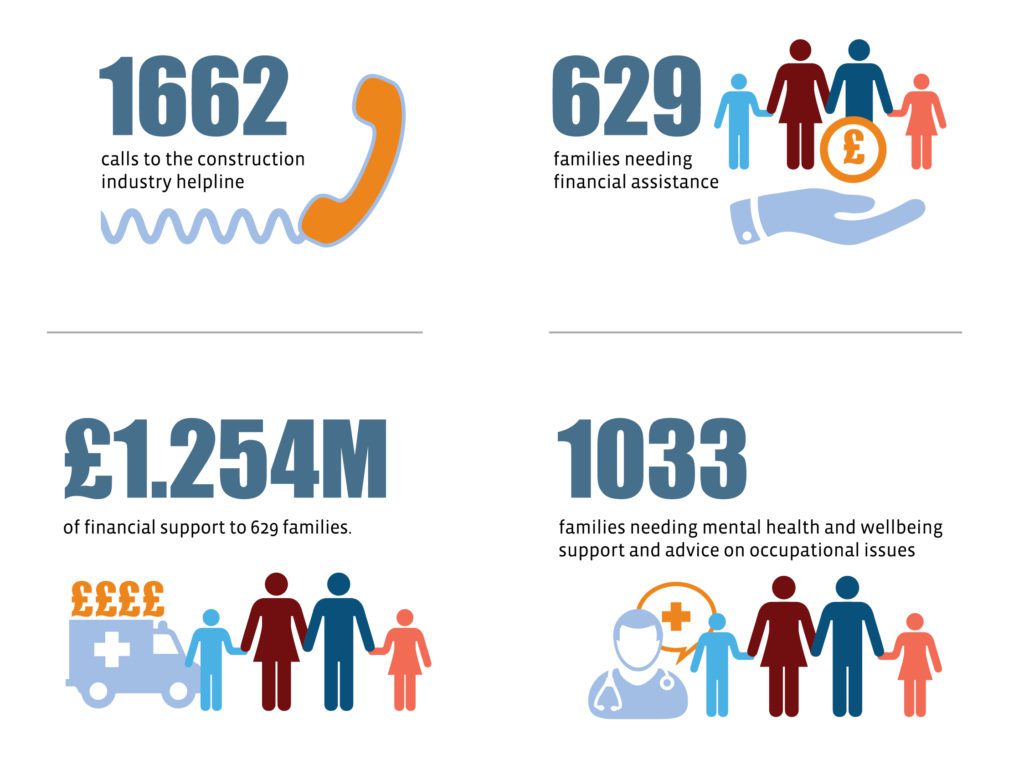
A helpline for the construction industry has provided over £1 million of charitable services to support the wellbeing of the sector’s workforce, it has been revealed.
The Lighthouse Construction Industry Helpline provided £1.254 million to workers and their families in 2018 – a 75% increase on the previous year’s figure.
1662 construction families in crisis called the helpline in 2018. 662 of these cases were seeking emergency financial support. A further 1033 of these were given advice on issues ranging from mental wellbeing issues through to legal, debt management and taxation advice.
The charity also claims to have seen a “huge increase” in requests for its helpline packs, with over 350,000 helpline cards in circulation within the construction workforce.
Bill Hill, CEO of the Lighthouse Construction Industry Charity said, “On the positive side, the 2018 figures show that we are reaching out to more construction workers and their families, but it also means that too many of them find themselves in desperate situations.
“The significant escalation in families needing our support has taken us by surprise and has put pressure on our finances. With two construction workers taking their own life every single working day, and stress, depression, and anxiety accounting for a fifth of all work related illness, it’s vital that we continue to provide our helpline services and put additional funding into the construction industry’s dedicated and volunteer led Building Mental Health programme. But the only way that we can plan ahead is with predictable income.
“That’s why we launched our Company Supporters initiative and our ‘Save a Life’ campaign. We’re urging companies to pledge a regular annual donation to ensure the long-term sustainability of our valuable charitable services.”
The charity has also recently launched its helpline app with support from construction software firm COINS. The app gives people access to information about how they can help themselves or take the next step in seeking professional help. This “preventative tool” seeks to provide support at the early stages of a situation so the problem does not reach a life critical stage by providing information, advice and guidance on wellbeing topics including stress, anxiety, depression, anger and suicidal thoughts.








